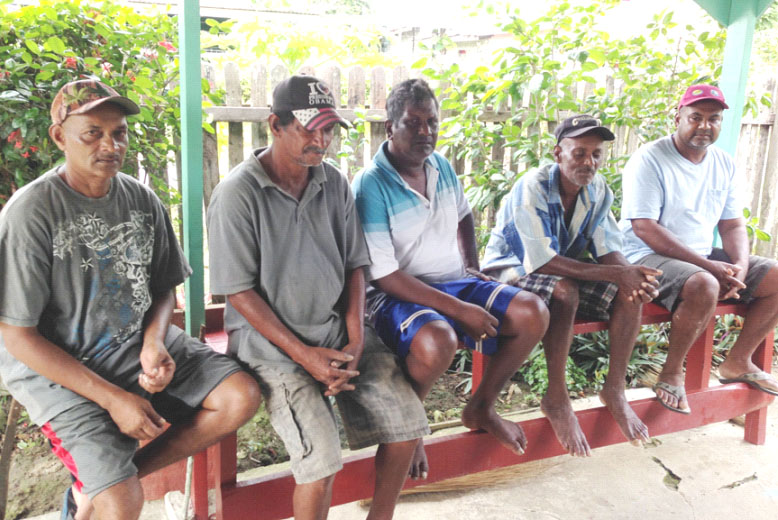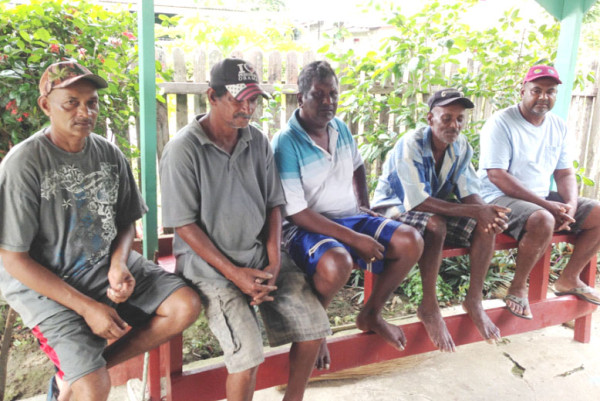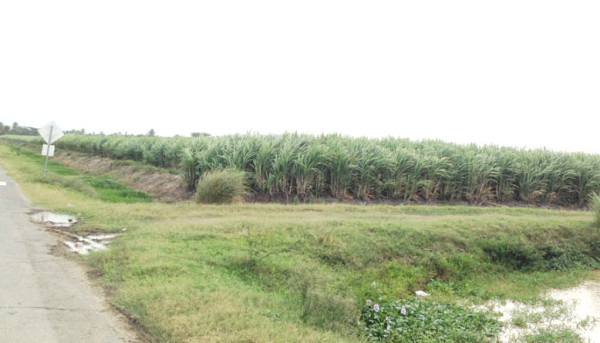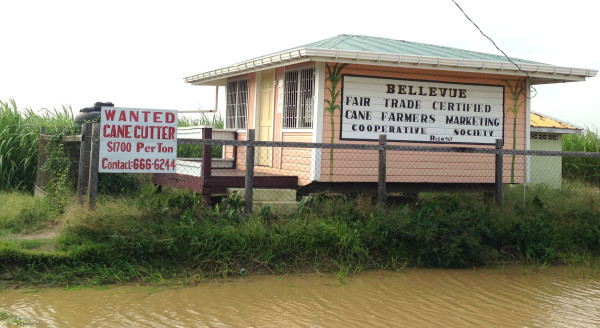Private farmers who supply cane to the Wales Sugar Estate are at their wits end to find an alternative means of earning a livelihood as they don’t believe that taking cane across the coast to the Uitvlugt estate is feasible.
Following the surprise announcement last month by GuySuCo of the closure of the Wales estate by the end of this year, private cane farmers are beginning to weigh their options. GuySuCo and the government have said they are examining ways of how to make the transport of cane between Wales and Utivlugt feasible but no details have been announced. Skepticism has already been expressed by farmers as to whether this is feasible or affordable.
Stabroek News spoke to farmers of the Belle Vue Cane Farmers Marketing Co-operative Society who said they were feeling like: “Alice in Wonderland” about their future.
“They would pay off the sugar workers but who would pay us. So many years we have supplied cane and now we have nothing to gain.”
The farmers reside at the Belle Vue Pilot Scheme that was established by Bookers in the 50s. At that time residents from Berbice, East Coast and other areas were asked to “give up everything to come here…”
Ramcharran Sukhram, 64, said his father was residing on the East Coast and was among the people who “made a sacrifice” to relocate.
GuySuCo offered them 57 concrete houses in the scheme at a cost of $2,500 each and they “had to work and pay for it.”
Each family was also given a lease for 15 acres of land to cultivate cane, which was supplied to GuySuCo. As a result, GuySuCo was not employing residents of the Belle Vue Scheme because it had its own estate. Some of the residents who did not have land worked with the farmers as labourers.
According to the farmers, “We never paid passage to go to work; from home to the backdam. Where we would go and find work now?”
They also wondered who would employ them because they were all over the age of 50.
One of them jokingly remarked: “Luckily we live close to the river, we gon have to catch fish.”
“The out-of-crop season affects us a lot, imagine what would happen if there is no crop at all. We would go hungry and people won’t afford to send their children to school.”
They had already invested most of their money in the “backdam” and were waiting on the estate to give them orders to burn the cane in preparation for harvesting. They have also cleaned the canals for the punts to pass through with the cane.
They lamented that the situation was becoming frustrating and that they were unsure about what would happen to the land.
“There is no alternative. The lease is just to plant cane but we are hoping that they can give us permission to plant other crops.”
Gurdat Ramdat, 53, said he “grew up in cane farming. I used to help my father since school days and it is sad to see the business finish just like that.”
At the age of 18 he started the cane farming fully and said: “if I was working at the estate, at least I woulda get benefits.”
Kampta, 55, recalled that his grandfather moved from Berbice in the 50s “to live and work in Bellevue.” His grandfather gave a “contract to a man to plant his land but the man robbed him.”
Mohan Persaud, 57, moved to Bellevue in 1993 after his grandfather asked him to help to take care of his land. He cultivated the land and worked part-time as a “bull-man.”
He resided at Tuschen and worked at the Uitvlugt estate. He left behind “18 years of service to come but I never predicted this would happen.”
The farmers said they used their own punts to transport the cane to the estate via the canal but the punts need repairing and they cannot afford the cost. They were now renting the estate’s to transport the cane.
They explained that the fields were not designed to accommodate tractors and trailers, noting that if they have to take the cane to Uitvlugt they would have “double work” to bring it out via the punt and then transfer it to trailers.
They pointed out that: “It is expensive to take it right at Wales, how would we afford to take it till to Uitvlugt?”









